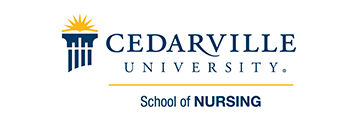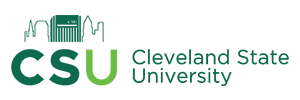Cedarville University Online Nurse Practitioner Program – AGACNP, FNP, PNP
What to Expect from the Cedarville University Online MSN – FNP Program
Admission Requirements: All applicants must profess faith in Jesus Christ. Applicants to the MSN program must hold an unencumbered RN license in the United States and a BSN from a regionally accredited institution with a preferred minimum GPA of 3.0 or higher. Online applications must include the application and application fee, official transcripts, a recommendation from a Christian leader, a professional recommendation, and a resume. Prerequisites include a nursing statistics course and a nursing research course. No GRE or GMAT is required. Applicants should read and understand the doctrinal statement of the University as this outlines the beliefs and Christian background of the institution.
Applicants to the DNP program may have either a BSN or MSN degree upon entry. Regardless of entry pathway, all applicants must meet the same GPA requirements as the MSN program noted above, namely, have a GPA of 3.0 or higher (on a 4.0-point scale). Applicants with a GPA of less than 3.0 (2.50 to 2.99) may still apply but must submit a petition providing documentation of capacity for academic success. In addition, applicants must submit official transcripts, proof of an active, unencumbered license as an RN in the United States, two letters of recommendation, two essays, and a resume. Finally, applicants must interview with the School of Nursing Graduate Admission, Progression, Retention Committee.
Applicants are also welcome from outside the United States. International applicants must submit a Christian leader reference and an official high school/secondary school transcript and/or documentation of completion of a secondary school program. If a transcript is in a language other than English or originates from a non-American high school program, applicants must submit their original transcript to a credential evaluation service. The cost for credential verification and translation is the applicant’s responsibility. In addition, such applicants must also demonstrate English language proficiency. Details on the different means available to demonstrate such proficiency can be found on the international students section of the Cedarville University website.
State Restrictions: While Cedarville University accepts students from most states into their MSN – FNP program, students from Alabama, Arizona, Delaware, Idaho, Iowa, Louisiana, Massachusetts, Minnesota, New York, North Dakota, Oklahoma, Oregon, Rhode Island, South Dakota, Tennessee, Utah, Washington, and Wyoming are not accepted at this time. The MSN FNP program meets requirements for national certification in all states; however, applicants outside of Cedarville, OH should check with the Board of Nursing in their state to understand the clinical requirements for their state.
Study Plan: The MSN – FNP program is offered both part-time and full-time. The part-time program can be completed in seven semesters and the full-time program in six semesters. Students generally begin in the fall; however, spring and summer admission is possible if there is room for the required courses. Campus visits are required four times throughout the program and each student completes a clinical preceptorship at a location close to where they live and work.
The BSN-DNP program can be completed in approximately four years. The MSN-DNP program requires completion of 35 to 68 credit-hours and may be completed in as little as two years.
MSN Curriculum: Students of all MSN programs complete a common set of graduate nursing, direct care and applied scholarship core courses. The total credit requirements for these three components is 23 credits. The 12 credits of graduate nursing core courses include professional role development and healthcare leadership; healthcare economics and policy; principles of evidence-based nursing practice; and biblical basis for advanced nursing practice. The nine credits of direct care core courses comprise advanced physiology, pathophysiology and genomics for advanced nursing practice; advanced pharmacology for advanced nursing practice; and advanced health assessment and diagnostic reasoning for advanced nursing practice. Finally, the two credits of applied scholarship core coursework derive from a single course in applied scholarship in advanced nursing practice.
- MSN-FNP Curriculum: In addition to the 23 credits of core courses common to all MSN specializations, students complete 22 hours of FNP courses. FNP specialty courses include advanced concepts and practice in the care of adults; advanced concepts and practice in the care of older adults; advanced concepts and practice in the care of women; advanced concepts and practice in the care of children; and two transition courses focused on clinical and practice elements of advanced practice nursing.
- MSN-AGACNP Curriculum: In addition to the 23 credits of core courses common to all MSN specializations, students complete 22 credits of AGACNP courses. AGACNP specialty courses include acute care concepts and practice I, II, and III (3 courses) and two transition courses focused on clinical and practice elements of advanced practice nursing.
- MSN-PNP (Primary Care Track) Curriculum: In addition to the 23 credits of core courses common to all MSN specializations, students complete 22 credits of PNP courses. PNP specialty courses include advanced concepts and practice in pediatric primary care, development and behavioral health, health promotion, and disease management (four courses focused on these four topics), and two transition courses focused on clinical and practice elements of advanced practice nursing.
DNP Curriculum: Students may enter the DNP program with either a BSN or a MSN degree. All DNP students complete a total of 23 credits of graduate core courses. These courses are the same set of graduate nursing, direct care, and applied scholarship core courses that MSN students must complete.
Students then complete 32 to 35 DNP core course credits. Core courses include foundation of scholarly inquiry; biostatistics; healthcare informatics; scholarly writing; application of scholarly inquiry; quality improvement and safety; population health and epidemiology; advocacy and resource management; ethical healthcare delivery in organizations and systems; scholarly practice integration; and three to six credits of electives.
- BSN-DNP: Students complete 22 credits of specialty courses to round out their program. These courses are the very same courses as the speciality courses MSN students take as noted in their respective specializations above. Students ultimately complete 75 to 77 credits and 800 clinical hours to earn their BSN-DNP from Cedarville University.
- MSN-DNP: Students must complete less coursework than their BSN-DNP counterparts. Students complete a total of 35 to 68 credit hours. The MSN-DNP program offers the same three specializations as the BSN-DNP program, namely FNP, AGACNP, and PNP-primary care.
- Courses MSN-DNP students may ultimately take include foundation of scholarly inquiry; biostatistics; healthcare informatics; scholarly writing; application of scholarly inquiry; scholarly practice integration; quality improvement and safety; scholarly practice integration; population health and epidemiology; advocacy and resource management; ethical healthcare delivery in organizations and systems; and elective coursework. All admitted post-graduate students will develop an individualized study plan based on a gap analysis. What any individual student ultimately studies may thus deviate from the courses listed here.
Online Experience: Cedarville University delivers courses through the Canvas Learning Management System (LMS). Learning modes may include recorded lectures, videos, readings, assignments, assessments, discussion boards, online chat, and email interaction. Technical requirements include a high-speed internet connection, up-to-date computer hardware and software, and current browser settings. Students can access faculty during office hours and through email, chat, and phone. Online students have access to academic advising, round-the-clock technical support, an online library, online bookstore, and career services.
On-Site Requirements: MSN students must come to campus four times for two to three days each for clinical experiences at the Cedarville, Ohio campus. The first is a clinical orientation before beginning the clinical courses. The remaining three visits occur once during each semester of the clinical courses. Students are also welcome to come to campus to visit any time and participate in graduation ceremonies on campus.
Paying for Cedarville University Online MSN – FNP Program
Cedarville University’s tuition rates are listed below. Prospective students should contact the School of Nursing through Cedarville University for updated tuition information, as tuition costs may increase yearly.
Cedarville University offers federal Stafford loans and Graduate PLUS Loans, according to the FAFSA. Graduate students may also wish to check with their employer as to their eligibility for a reimbursement program. Other options for funding may exist outside the university and government entities including scholarships and grants through community organizations and religious organizations.
Cedarville University prepares registered nurses to be leaders who serve with Christian compassion and ethics through their flexible and affordable MSN, BSN to DNP, and MSN to DNP nurse practitioner degree programs. Each program requires four campus visits and features preceptorships that may be completed at approved facilities local to the student. Each accommodates part-time and full-time students.
BSN to DNP – Adult-Gerontology Acute Care NP
BSN to DNP – Family Nurse Practitioner
BSN to DNP – Pediatric Nurse Practitioner
MSN – Adult-Gerontology Acute Care NP
MSN – Family Nurse Practitioner
MSN – Pediatric Nurse Practitioner
MSN to DNP – Adult-Gerontology Acute Care NP
MSN to DNP – Family Nurse Practitioner
MSN to DNP – Pediatric Nurse Practitioner
251 N. Main St.
Cedarville, Ohio 45314
Program Essentials
DNP – Doctor of Nursing Practice
AG-ACNP – Adult-Gerontology Acute Care Nurse Practitioner
Fall I, Fall II, Spring I, Spring II, Summer I, Summer II
No
4
83
800
CCNE – Commission on Collegiate Nursing Education
Program Admissions
BSN – Bachelor of Science in Nursing
No GRE Required
3.0 or higher
AL, AZ, DE, ID, IA, LA, MA, MN, NY, ND, OK, OR, RI, SD, TN, UT, WA, WY
Program Tuition
83
$750.00
$62,250.00
$750.00
$62,250.00
Program Essentials
DNP – Doctor of Nursing Practice
FNP – Family Nurse Practitioner
Fall I, Fall II, Spring I, Spring II, Summer I, Summer II
No
4
83
600
CCNE – Commission on Collegiate Nursing Education
Program Admissions
BSN – Bachelor of Science in Nursing
No GRE Required
3.0 or higher
AL, AZ, DE, ID, IA, LA, MA, MN, NY, ND, OK, OR, RI, SD, TN, UT, WA, WY
Program Tuition
83
$750.00
$62,250.00
$750.00
$62,250.00
Program Essentials
DNP – Doctor of Nursing Practice
PNP-PC – Pediatric Nurse Practitioner – Primary Care
Fall I, Fall II, Spring I, Spring II, Summer I, Summer II
No
4
83
800
CCNE – Commission on Collegiate Nursing Education
Program Admissions
BSN – Bachelor of Science in Nursing
No GRE Required
3.0 or higher
AL, AZ, DE, ID, IA, LA, MA, MN, NY, ND, OK, OR, RI, SD, TN, UT, WA, WY
Program Tuition
83
$750.00
$62,250.00
$750.00
$62,250.00
Program Essentials
MSN – Master of Science in Nursing
AG-ACNP – Adult-Gerontology Acute Care Nurse Practitioner
Fall I, Fall II, Spring I, Spring II, Summer I, Summer II
No
4
48
800
CCNE – Commission on Collegiate Nursing Education
Program Admissions
BSN – Bachelor of Science in Nursing
No GRE Required
3.0 or higher
AL, AZ, DE, ID, IA, LA, MA, MN, NY, ND, OK, OR, RI, SD, TN, UT, WA, WY
Program Tuition
48
$707.00
$33,936.00
$707.00
$33,936.00
Program Essentials
MSN – Master of Science in Nursing
FNP – Family Nurse Practitioner
Fall (but can admit in Spring and Summer if there is room in classes)
No
4
48
600
CCNE – Commission on Collegiate Nursing Education
Program Admissions
BSN – Bachelor of Science in Nursing
No GRE Required
3.0 or higher
AL, AZ, DE, ID, IA, LA, MA, MN, NY, ND, OK, OR, RI, SD, TN, UT, WA, WY
Program Tuition
48
$707.00
$33,936.00
$707.00
$33,936.00
Program Essentials
MSN – Master of Science in Nursing
PNP – Pediatric Nurse Practitioner
Fall (but can admit in Spring and Summer if there is room in classes)
No
4
48
800
CCNE – Commission on Collegiate Nursing Education
Program Admissions
BSN – Bachelor of Science in Nursing
No GRE Required
3.0 or higher
AL, AZ, DE, ID, IA, LA, MA, MN, NY, ND, OK, OR, RI, SD, TN, UT, WA
Program Tuition
48
$707.00
$33,936.00
$707.00
$33,936.00
Program Essentials
DNP – Doctor of Nursing Practice
AG-ACNP – Adult-Gerontology Acute Care Nurse Practitioner
Fall I, Fall II, Spring I, Spring II, Summer I, Summer II
No
4
74
800
CCNE – Commission on Collegiate Nursing Education
Program Admissions
MSN – Master of Science in Nursing
No GRE Required
3.0 or higher
AL, AZ, DE, ID, IA, LA, MA, MN, NY, ND, OK, OR, RI, SD, TN, UT, WA, WY
Program Tuition
74
$750.00
$55,500.00
$750.00
$55,500.00
Program Essentials
DNP – Doctor of Nursing Practice
FNP – Family Nurse Practitioner
Fall I, Fall II, Spring I, Spring II, Summer I, Summer II
No
4
74
600
CCNE – Commission on Collegiate Nursing Education
Program Admissions
MSN – Master of Science in Nursing
No GRE Required
3.0 or higher
AL, AZ, DE, ID, IA, LA, MA, MN, NY, ND, OK, OR, RI, SD, TN, UT, WA, WY
Program Tuition
74
$750.00
$55,500.00
$750.00
$55,500.00
Program Essentials
DNP – Doctor of Nursing Practice
PNP-PC – Pediatric Nurse Practitioner – Primary Care
Fall I, Fall II, Spring I, Spring II, Summer I, Summer II
No
4
74
800
CCNE – Commission on Collegiate Nursing Education
Program Admissions
MSN – Master of Science in Nursing
No GRE Required
3.0 or higher
AL, AZ, DE, ID, IA, LA, MA, MN, NY, ND, OK, OR, RI, SD, TN, UT, WA, WY
Program Tuition
74
$750.00
$55,500.00
$750.00
$55,500.00
Tuition is calculated based on credits, at the published tuition rate. Rates may change, so please check here for the latest tuition information. For programs with variable tuition rates, we use the rates for part-time students. “Resident” and “non-resident” refer to the student’s school-recognized state residency status. Tuition number represents the cost of tuition for the entire program, not per semester or year. Estimated total tuition does not include additional fees.

Bernd Geels
WriterBernd Geels is a Berlin, Germany-based freelance writer and artist. He holds an undergraduate degree in atmospheric science and two graduate degrees. He completed his most recent graduate degree in international environmental studies at the Monterey Institute of International Studies in 2011. He is interested in healthcare, climate change, marine conservation, indigenous science, and refugee issues. You can reach him directly at [email protected].

Sara Navratil
WriterSara Navratil is a freelance writer and a Certified Canfield Success Principles Trainer. She’s the owner of Sara Liza Life, a company dedicated to helping people rewrite their lives. She enjoys researching and writing about healthcare-related topics, including information on online NP programs. When not working she likes to read, bake, and spend time with her family.



